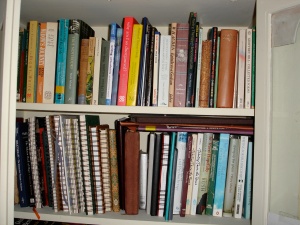In the film The Stories we Tell director Sarah Polley interviews members of her family & their circle about events in their history. She plays with the documentary genre in artful & artistic ways. While it begins as a film about her father and her dead mother it becomes a detective story about Polley’s own beginnings. Different people answer her questions in often contradictory ways as events and circumstances are re-assessed. The film raises questions like “who owns our stories? whose stories are they to tell?”.

An interviewee talks about concentric circles of ownership. The inner circle consists of only the people who were involved in an event (participants), the next circle contains people who were told by those involved, further out are the people who became aware of the story in some other way.
He espouses the view that only the participants own the story and the right to tell or not tell (in which case the film would never have been made).
What about people who are affected but are not the active participants? Some people have ambiguous stories about their beginnings – perhaps because of trauma in childhood, adoption, displacement, loss. Who gets to own or tell their stories?
Journal Prompt:
1) Write about an event or relationship from some time in your life (either something you remember or something you’ve been told about). Write in the first person
2) Re-write it from the perspective of another participant.
3) Write it a third time from the perspective of someone not a participant but who would have known about it, either at the time or later.
An article in the New York Times comments on research that shows:
The single most important thing you can do for your family may be the simplest of all: develop a strong family narrative.
Journal prompt: Write down a family story – one that’s part of your family narrative, the kind

of story that gets re-told at family gatherings.
Is there anyone you could share your writing with? Would they agree with your version?
Who decides what is the truth of the accepted family narrative? In novels the truth is sometimes revealed, as in Elizabeth Strout‘s recent novel The Burgess Boys (where people have to re-evaluate their lives and constructed identities as a result) or not, as in Sarah Butler’s 10 Things I’ve Learnt about Love (a novel with Lists of 10 between each chapter – a useful journal technique when short of time!)
Perhaps it is only by writing the story or making the film that we know what our story is and begin to own it……

